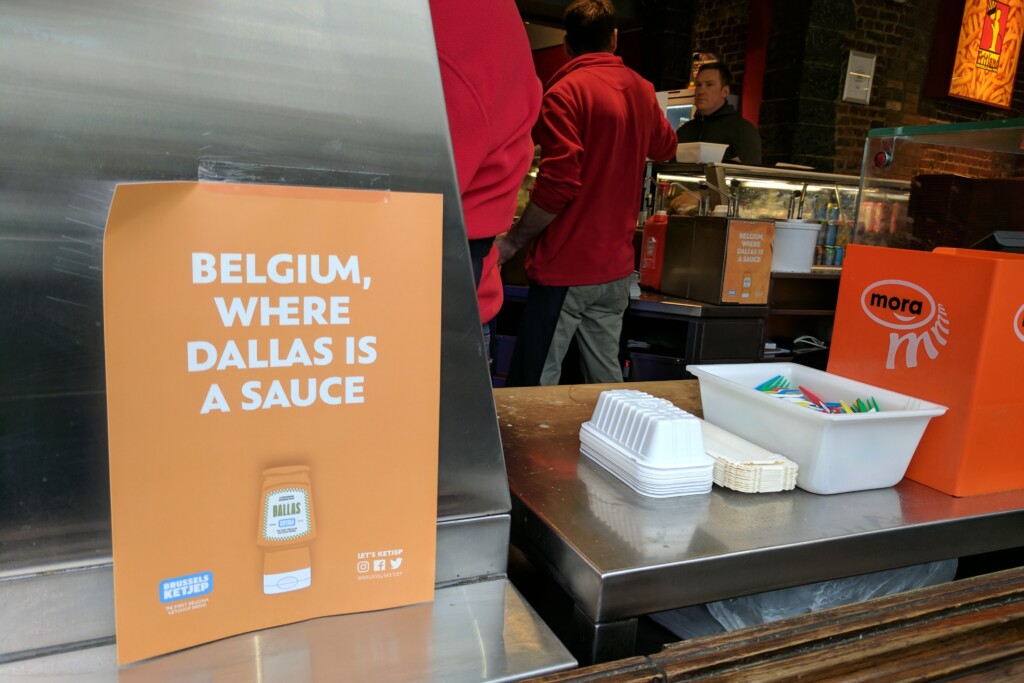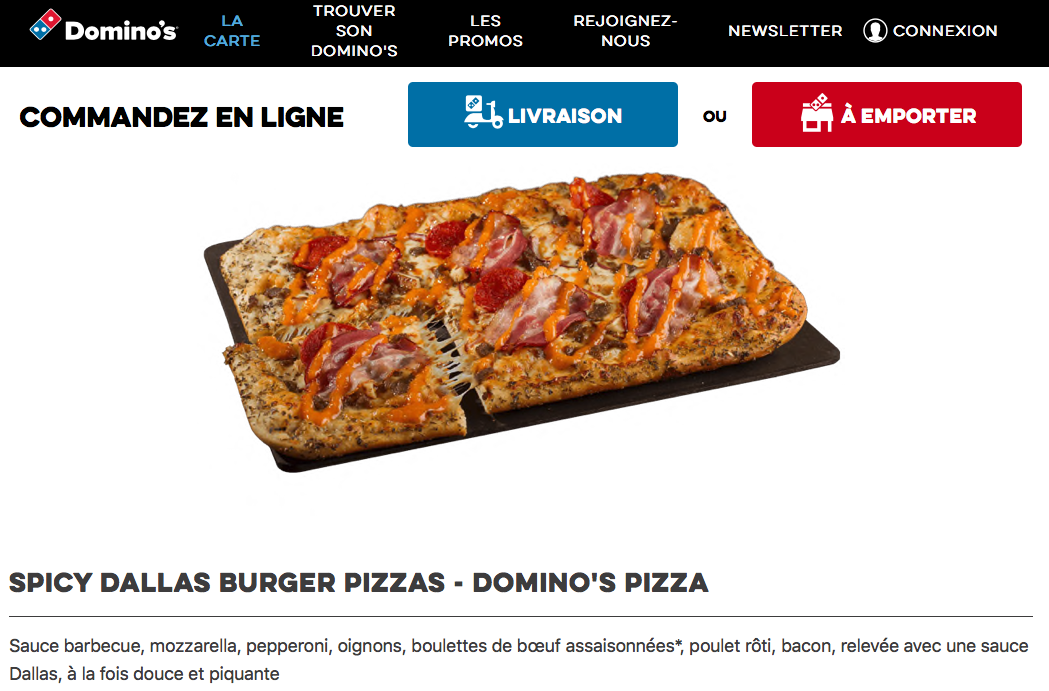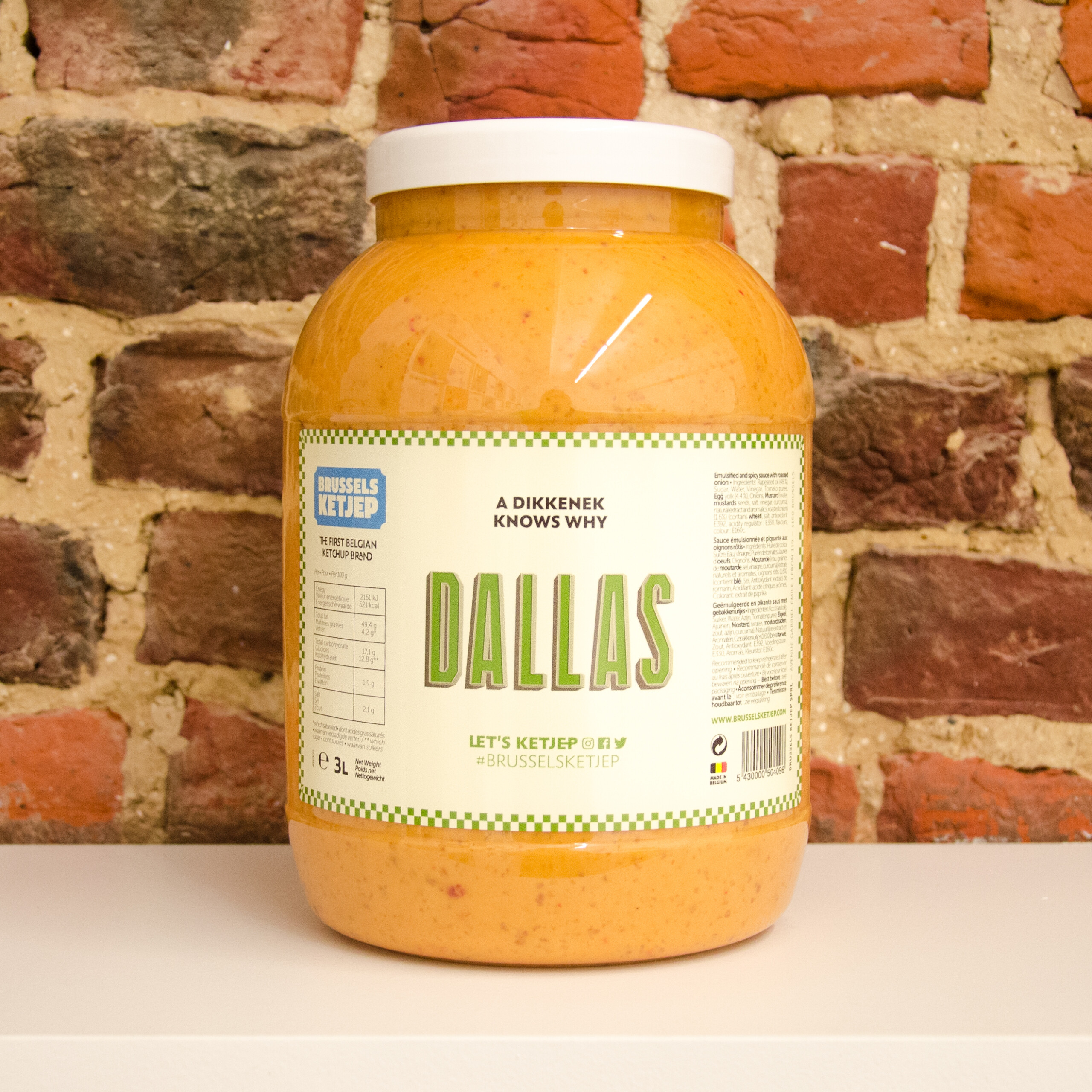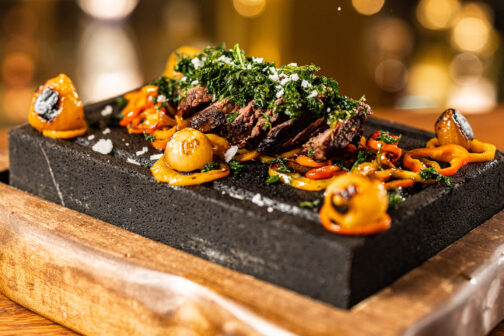Today, we’re solving one of our city’s greatest culinary mysteries. And it’s a mystery you probably didn’t know about: the story of Dallas sauce.
Dallas sauce is a real, iconic, delicious condiment. Thousands of people eat it every single day. A large company sells bottles of it in retail stores. There’s just one problem: None of this is happening in Dallas. “Dallas sauce” is from Belgium.
I first found out about Dallas sauce while on vacation in Brussels in 2017. If you’ve never been, Belgium is a merry land where the people live on a steady diet of fries, waffles, chocolate, and beer. The preferred fry condiment is not ketchup but mayonnaise, which is more piquant and eggy there, and is often flavored with additives like Dijon mustard or curry powder.
The Brussels Ketjep company began manufacturing Dallas sauce in 2014. It’s a sweet-spicy mayo-based condiment that also includes dollops of both ketchup and mustard, plus the crucial ingredient that imparts true Dallas flavor: long-roasted onions. They’re so proud of that cooked onion, they even market the sauce as having a “crispy onion taste.” Today, fritshops (fry stands) across Brussels include Dallas sauce in their condiment lineups.
“Dallas sauce is one of our best sellers,” says Sylvain Bologne, the founder of Brussels Ketjep. “You can find it everywhere in retail, fast food, and premium restaurants. Even Domino’s Pizza used it as a topping for five years in France.”
Yes, you read that correctly. In France, they have Dallas-style pizza.
(Quick translation of Dallas-style pizza: the toppings are pepperoni, seasoned ground beef, roasted chicken, bacon, onions, mozzarella, barbecue sauce, and Dallas sauce. Not bad!)
The flavor of Dallas sauce—sweet, hot, oniony, peppery—sounds intriguing. But how did Dallas get dragged into this?
The answer lies in a 2006 comedy movie called Dikkenek. I haven’t seen it, but it sounds sort of like a Belgian version of Dazed and Confused: a low-budget cult comedy about slacker goofball young people, with a future Hollywood superstar in a supporting role (Marion Cotillard, a year before her Oscar win). In one scene, a character walks up to a fry stand and places an order for fries with “sauce Dallas.” Dallas sauce did not exist at the time, so the line was a throwaway joke.
“In the movie you don’t see any sauce and they don’t speak about flavor,” Bologne says. “It’s just a dumb reply in the dialogue. The joke was so cult that even in France they thought the Dallas sauce was a real big thing in Belgium.”
And, I regret to say, the joke might be on us. The “sauce Dallas”-loving character is a punk-ass guy in a leather jacket with odd hair (his sideburns are longer than either his beard or the hair on the side of his head). He spends the rest of the scene spitting all over the place. Another customer comes up, and he spits on that guy, too. Also, Dikkenek translates, slangily, to “big mouth” (though the titular big mouth belongs to another character).
“Important to know that Belgium has a weird culture where surrealism is part of our education,” Bologne tells me.
He adds that the “big mouth” name inspired him to develop a spicier recipe with a caramelized flavor base. Although“Dallas sauce” originates from the movie, the ketchup company’s founder enjoys the name for another reason. “Some people are confused by the name Dallas when I say it’s a Belgian product from a Belgian company,” he says.”But I don’t care, I’m a Mavs fan since the Three J’s!”
But if the real-life sauce was inspired by a movie, where did the movie joke come from? To learn the true meaning of “sauce Dallas,” I sent an Instagram message to Dikkenek’s screenwriter and director, Olivier van Hoofstadt. He replied with the two words, “Sauce Dallas.” Then he reacted to his own reply with a heart emoji.
So I asked again in French. He named it after the TV show.
Unbeknownst to us, the classic soap opera Dallas inspired a foreign filmmaker to invent a sauce, and that, in turn, inspired an actual sauce company to make it. It’s now served in Belgium, France, The Netherlands, Hong Kong, Israel, and Dubai. But there’s still one problem.
Here in Dallas, we don’t have any.
Brussels Ketjep is a small company without American distribution. Its web shop will ship to the United States, but the shipping costs for a private customer are steep: a flat 25 euro charge on the first four bottles; if you buy five or more, postage jumps to 60 euros. Bologne says that they have shipped several orders to Texas. If my editors don’t mind the expense, we’ll buy a box and run a taste test column when the sauce arrives.
In the meantime, we can call for Dallas-based cooks to come up with their own Dallas sauces—and even their own Dallas-style pizzas. Bologne tells me that our sauce is often used on burgers and meatballs, and in pots of mussels. Let’s see what we can do with the current rubric of a spicy, roasted-oniony mayo dip. But since the original movie does not specify a recipe, there is only one limit to our creativity.
No matter what’s in it, Dallas sauce needs to be delicious with a cone of fries.
Get the SideDish Newsletter
Author








